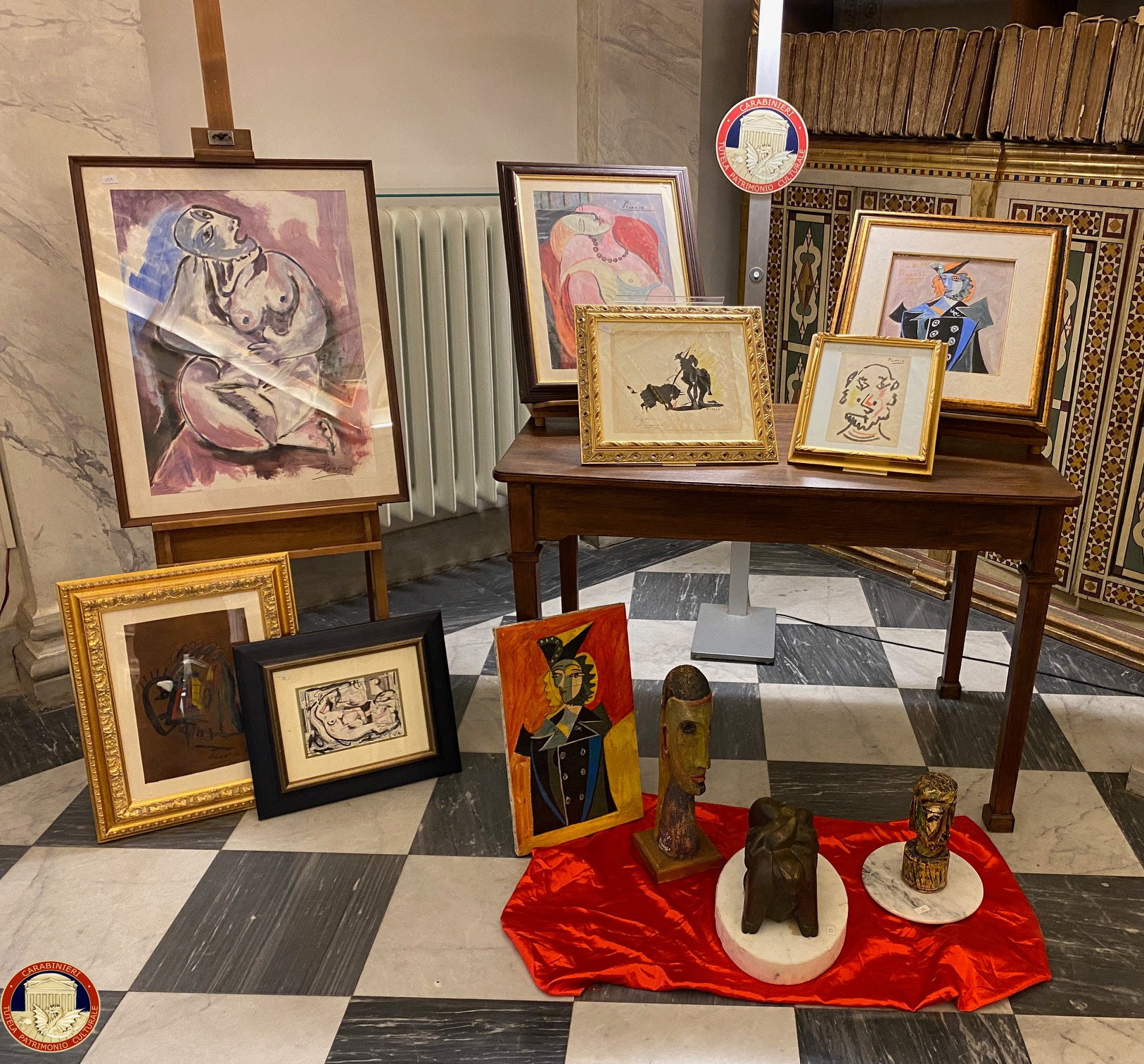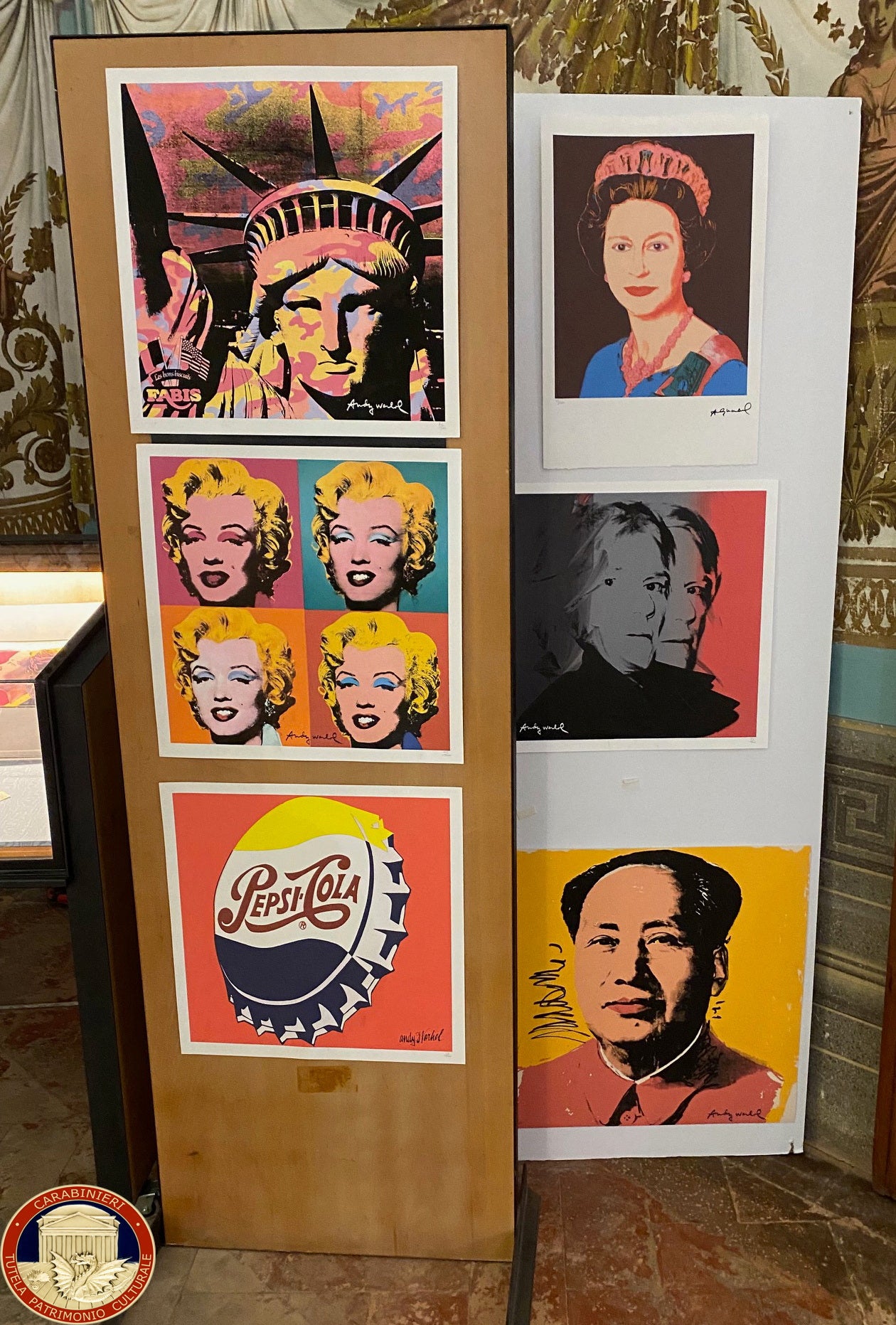Police in Italy said they have successfully broken up a major European criminal network that was forging and selling artwork attributed to some of the biggest names in modern and contemporary art, including Banksy and Andy Warhol.
Over 2,100 pieces of forged artwork were recovered, which were supposedly by Banksy, Salvador Dalí, Gustav Klimt, Joan Miró, Andy Warhol, and Pablo Picasso, and were potentially worth about €200m (£165m). Thirty eight people across Italy, Spain, and Belgium have been arrested over the forgeries and its illegal sale.
Forgeries of artists like Claude Monet, Vincent van Gogh, Henry Moore, Giorgio de Chirico, Marc Chagall, Jackson Pollock, Francis Bacon, Paul Klee, Wassily Kandisky, and Piet Mondrian were also found.
The investigation was announced in a joint statement on Monday (11 November) by the paramilitary Carabinieri art squad and the Pisa prosecutors’ office, reported Reuters.
Teresa Angela Camelio, chief prosecutor of Pisa, said that experts from the archive who assisted with the investigation were considering this operation as “the biggest act of protection of Banksy’s work”.
“The activity carried out made it possible to shed light on a transnational system of forgers interconnected with compliant auction houses.”

The investigation was taken up in March last year after Italian art police seized 200 works of contemporary art from a businessman in Pisa. His collection included a copy of a drawing of Caryatid by Italian painter Amedeo Modigliani, which gave the operation its name: Operation Cariatide.
This in turn led investigators to auction houses across Italy, which were selling contemporary artworks at extremely low prices. Six forgery workshops were thus uncovered, three in Italy and three elsewhere in Europe, containing over 1,000 fake artwork, as well as 450 counterfeit certificates and 50 fake stamps that were meant to guarantee that the forged art was authentic.
The suspects primarily created the copies of the artwork and then made agreements with different Italian auction houses. They even organised two separate Banksy exhibitions with a published catalogue in reputable locations in Mestre near Venice and Cortona in Tuscany, investigators said.

Camelio added that if the investigation had not managed to uncover the network of forgers and compliant auction houses, the forged works could have been sold at prices “close to the artists’ original works,” which would “certainly have significantly changed the auction market”.
“The operation has also allowed us to identify and block works that could have been placed on the market with prices close to those of the artists’ original works,” she said.
Banksy expert Stefano Antonelli, who was present at the press conference, said a majority of the fakes were stamped Dismaland, referring to the temporary apocalyptic theme park Banksy created in 2015 in the seaside resort of Weston-super-Mare in Somerset, England.
Antonelli also noted that the forgers created entirely new Bansky work, where they painted his iconic flower thrower onto a road sign, reported ArtNews.
A majority of the works that were seized in the operation are now being displayed at Palazzo Toscanelli in Pisa.
The Independent has reached out to Banksy’s representatives for a comment.







